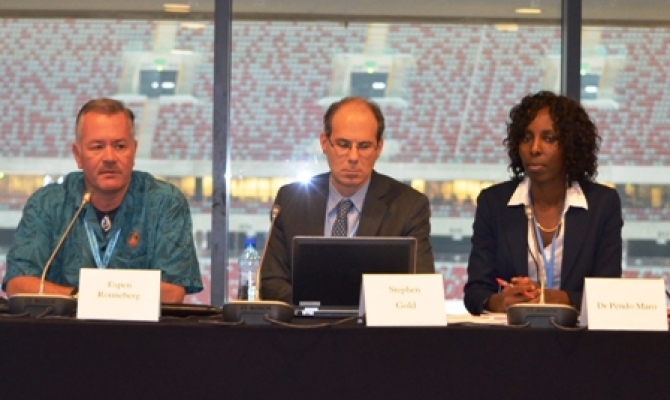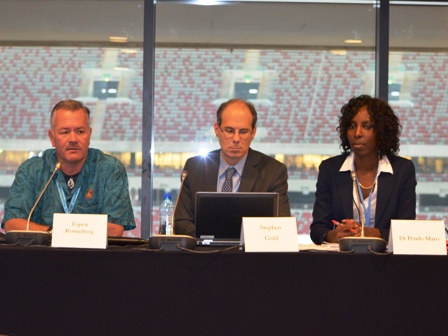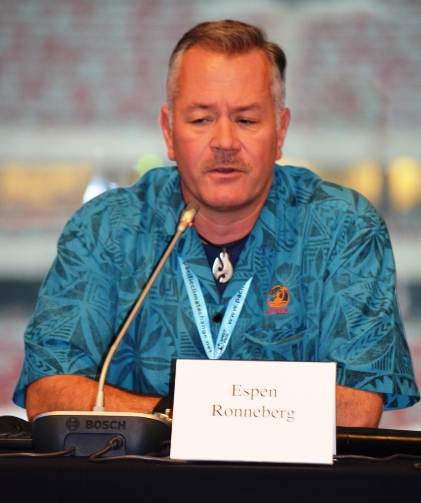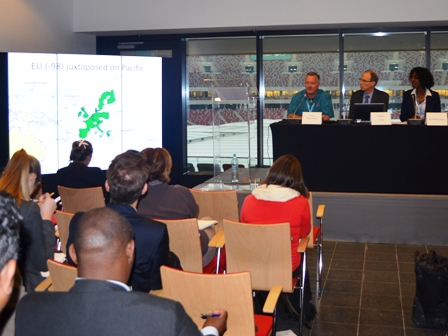
Climate Change Resilience

14 November 2013, UNFCCC, Warsaw Poland - The Secretariat of the Pacific Regional Environment Programme (SPREP) shared experiences of their journey to achieve Regional Implementation Status under the Climate Change Adaptation Fund Board at the UN Climate talks in Warsaw.
A special event coordinated by the European Union Global Climate Change Alliance featured two speakers from the Pacific, Mr. Espen Ronneberg SPREP's Climate Change Adviser and Dr Elisabeth Holland, Director of the Pacific Centre for Environment and Sustainable Development, University of the South Pacific.
It took three years for SPREP to achieve the Regional Implementing Entity status, over which there was much documentation submitted and institutional changes that took place.
"While we showed on paper, though extensive documentation, that our policies and procedures were amended, we then had to show that these were actually functional when implemented," said Ronneberg during his presentation.
"We had several ne Pacific climate change projects happening which were now being subjected to the new systems to show that these procedures were working."
As of two weeks ago SPREP received official notice that their application for RIE was approved.

"This has been a real learning experience for SPREP and we now plan to document all this information and share it with our members. Over the three year period we had to institutionalise functions within our systems which are unique to the region."
SPREP benefitted due to support from the GCCA partners as well as others such as the UNEP Frankfurt School UNEP Collaborating Center.
Ronneberg also presented on climate change finance support provided by a GCCA project underway in the region for which SPREP is working closely with the Secretariat of the Pacific Community (SPC), in implementing.
"It covers the nine small island states in the Pacific for which significant work is being done on capacity building, mainstreaming climate change at the national level and financial support," presented Ronneberg.
"It was at a regional meeting on climate change finance in Tonga two months ago that the importance of regular dialogue and the need for developing trust between governments and development partners was emphasised."
One of the key messages to come from the regional meeting was the need to simplify international procedures and assist national governments in improving their enabling environments.

Access to climate change financing requires sound national systems, clear plans and policies, strong institutional systems, adequate resourcing and staffing of departments, regular reporting processes, and sound public financial management systems.
Direct budget support indicates a trust relationship between the donor and the recipient country and an endorsement of government policy; it is also a way to improve domestic accountability.
The special GCCA event took place on Wednesday, the 13th of November within the EU pavilion. The 19th Conference of the Parties to the United Nations Convention on Climate Change is hosted by Warsaw, Poland from 11 to 22 November.